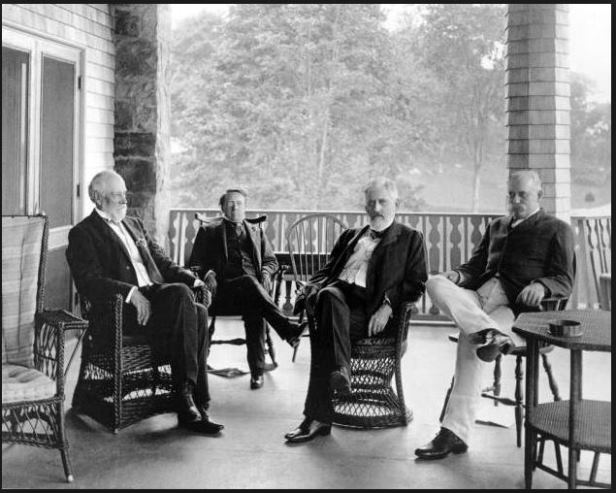Raised on a Connecticut farm, Orville Hitchcock Platt started his professional career as a small-town lawyer, but rose to become one of the most powerful Republican senators in Washington, DC. During the late 19th and early 20th centuries, Platt had the ear of the most influential politicians in the country, including President Theodore Roosevelt, and presented to Congress a groundbreaking piece of legislation that helped shape the country’s international relations for more than a century.
Born July 19, 1827, in Washington, Connecticut, Orville Platt grew up on the family farm and attended local schools, graduating from Professor Gunn’s Academy and then pursuing a career in law. He passed the Litchfield County Bar in 1850.
After briefly residing in Pennsylvania, Platt bought a house in Meriden, Connecticut, and used it as his primary residence for the next 50 years. He became an associate newspaper editor and served three years as judge of probate in Meriden. From 1855 to 1857 he served in the Connecticut State Senate, and then as the secretary of state. He then went on to the Connecticut General Assembly where he played an instrumental part in passing a bill that provided voting rights to Connecticut soldiers serving out of state during the Civil War.
A Powerful Member of the Senate Four

Moulthrop & Williams, Orville H. Platt, 1862, cartes-de-visite – Connecticut State Library, Connecticut General Assembly Portraits, PG 540
In 1879, the legislature elected Platt to serve in the US Senate, and he did so for the next 26 years. Platt rose steadily through the ranks of the Republican Party and became a member of the “Senate Four,” a group of Republican senators (that also included Nelson Aldrich from Rhode Island, William Allison from Iowa, and John Spooner from Wisconsin) who wielded tremendous influence in Washington political circles.
During his time as a senator, Platt involved himself in numerous debates on foreign affairs, particularly discussions regarding tariffs, restrictions on Chinese immigration, transitional governments in the Philippines, and the construction of the Panama Canal. On the domestic front, Platt served 14 years on the Committee of Indian Affairs and was a vocal supporter of President Theodore Roosevelt in the presidential election of 1904.
The Platt Amendment
Perhaps the achievement most closely associated with Orville Platt’s career was the passage of an amendment to the Army Appropriations Bill of 1901. The amendment (actually authored by Secretary of War Elihu Root) provided a list of stipulations under which the United States agreed to end its occupation of Cuba—an occupation that began in 1898 during the Spanish-American War. The stipulations demanded that Cuba not allow any foreign power to infringe on its independence or use the island for any military purposes. More importantly, it gave the United States permission to intervene in Cuban affairs and to lease land for a naval base in Cuba—the base that became Guantánamo Bay. Because Platt was the senator who presented the amendment to Congress, the legislation earned the name, the Platt Amendment.
In March of 1905, Platt’s friend, Civil War hero, and fellow Connecticut Senator, Joseph Hawley, passed away in Washington, DC. Platt rode aboard Hawley’s funeral train back to Connecticut and attended Hawley’s funeral on what turned out to be a cold and raw late-winter day. Soon after, Platt caught a cold. After a few days back in Washington, DC, Platt returned to Connecticut, but it is believed his cold turned into pneumonia. He died shortly after at his summer home in Washington, Connecticut, at the age of 77.









